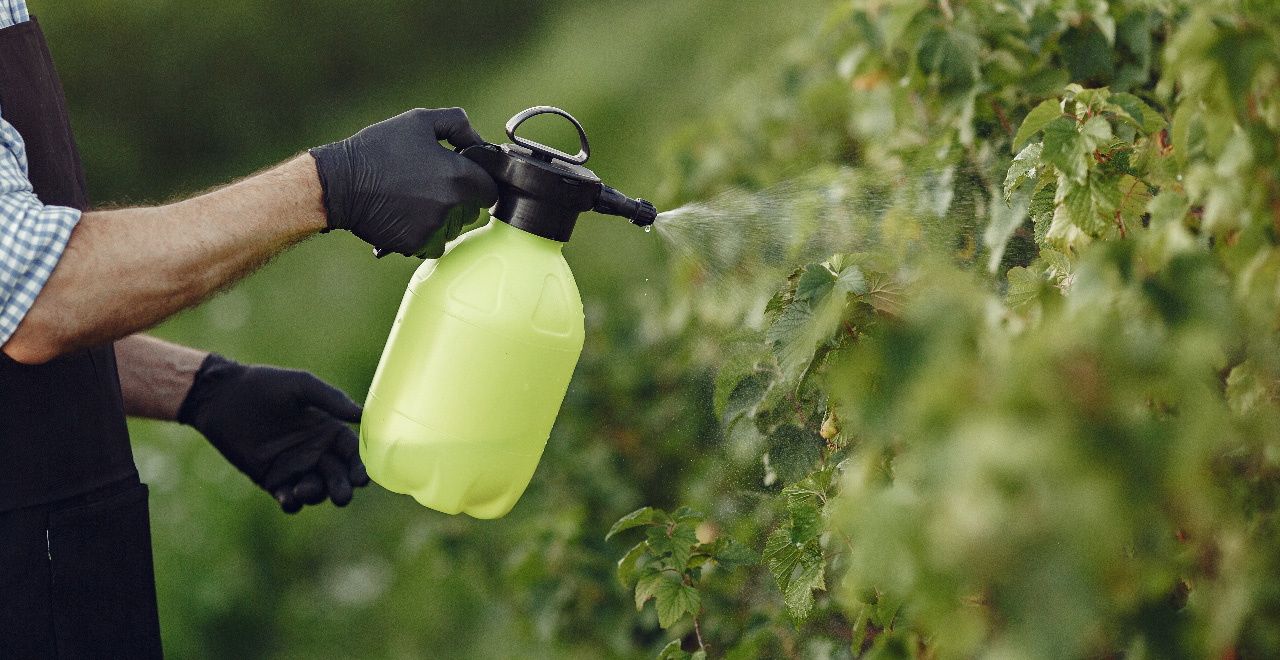What Are Bio-pesticides?
Bio-pesticides are naturally derived substances used for controlling pests and diseases in agricultural settings. Unlike conventional chemical pesticides which are often synthetic and may have harmful side effects, bio-pesticides can be derived from natural sources like plants, bacteria, fungi and even minerals. This eco-friendly approach aligns with sustainable agriculture practices, offering a promising avenue for reducing the reliance on synthetic chemicals while promoting environmental health.
Benefits of Bio-pesticides Over Chemical Pesticides
The shift towards bio-pesticides instead of traditional chemical pesticides offers several compelling advantages. Firstly, bio-pesticides tend to have a lower toxicity profile which means they are less harmful to beneficial insects, wildlife and humans. They often degrade more quickly in the environment minimizing the risk of long-term ecological impacts and contamination of soil and water sources. Many bio-pesticides also enhance soil health and support the natural balance of the ecosystem. With growing consumer demand for organic and sustainably produced food, the adoption of bio-pesticides can enhance marketability and meet regulatory requirements for organic certification.
There are numerous examples of effective bio-pesticides currently in use. One well-known bio-pesticide is Bacillus thuringiensis (Bt), a soil-dwelling bacterium that produces toxins harmful to certain insects, particularly caterpillars. Another example is neem oil, derived from the seeds of the neem tree which acts as a repellent and disrupts the life cycles of various pests. Pyrethrin extracted from chrysanthemum flowers also serves as a natural insecticide.
Barriers to Adoption of Bio-pesticides
Despite the advantages of bio-pesticides, many farmers are hesitant to shift from chemical pesticides. One significant reason is the perception of efficacy. Some farmers believe that bio-pesticides are less effective than their chemical counterparts, particularly in addressing severe pest infestations. There is often a lack of awareness or familiarity with the proper application techniques and timing required for bio-pesticides to be most effective. The availability and cost of bio-pesticides can be a barrier as some farmers may find that these products are not as readily accessible as traditional pesticides or may perceive them as more expensive. The transition to bio-pesticides also requires a change in farming practices and a willingness to experiment which can be daunting in a field where many farmers rely on established methods that have worked for them in the past.
Conclusion
In conclusion, bio-pesticides represent a sustainable and effective alternative to traditional chemical pesticides as they offer numerous environmental and health benefits. However, the transition requires overcoming certain barriers, including perceptions of efficacy and accessibility. By investing in education and support for farmers, we can facilitate a broader acceptance of bio-pesticides, ultimately leading to more resilient agricultural practices. Embracing bio-pesticides not only helps protect our crops but also contributes to the long-term health of our ecosystems, making it a crucial step toward a more sustainable future in agriculture.
Comments are closed.




